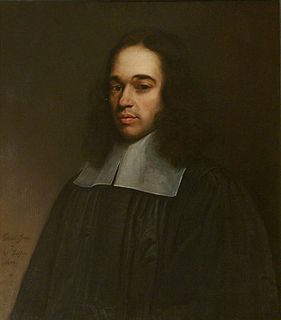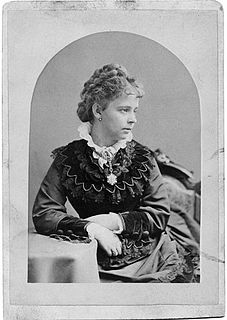A Quote by George Augustus Henry Sala
Love in modern times has been the tailor's best friend. Every suitor of the nineteenth century spends more than his spare cash on personal adornment. A faultless fit, a glistening hat, tight gloves, and tighter boots proclaim the imminent peril of his position.
Related Quotes
He[Napoleon] had destroyed only one thing: the Jacobin Revolution, the dream of equality, liberty and fraternity, and of the people rising in its majesty to shake off oppression. It was a more powerful myth than his, for after his fall it was this, and not his memory, which inspired the revolutions of the nineteenth century, even in his own country.
It seems to me that the novel is very much alive as a form. Without any question, every epoch has its own forms, and the novel nowadays cannot resemble that of the nineteenth century. In this domain all experiments are justified, and it is better to write something new clumsily than to repeat the old brilliantly. In the nineteenth century, novels dealt with the fate of a person or of a family; this was linked to life in that period. In our time the destinies of people are interwoven. Whether man recognizes it or not, his fate is much more linked to that of many other people than it used to be.
Leonard [Nimoy] was such a teacher for me. He was one of the most fully realized human beings I have ever known on every level - in his personal life with his personal relationships and his love for his wife and his evolution with his family. Then as an artist, as an actor, as a writer, as a poet, and as a photographer. He never stopped.
Timing is everything. Tell me how a young man spends his evenings and I will tell you how far he is likely to go in the world. The popular notion is that a youth's progress depends upon how he acts during his working hours. It doesn't. It depends far more upon how he utilizes his leisure...If he spends it in harmless idleness, he is likely to be kept on the payroll, but that will be about all. If he diligently utilizes his own time...to fit himself for more responsible duties, then the greater responsibilities - and greater rewards - are almost certain to come to him.
Most of what I read is for reviewing purposes or related to something I want to write about. It's slightly utilitarian. I definitely miss that sense of being a disinterested reader who's reading purely for the pleasure of imagining his way into emotional situations and vividly realized scenes in nineteenth-century France or late nineteenth-century Russia.
He had known he wanted her, that it was for all time, but he hadn’t realized what was between them. A priceless gift, a treasure beyond his dreams. She was wrapped so tight inside of him, he knew it was more than his body and mind. More than his heart. She was entrenched in his soul. (Ryland, on Lily)
One of the major changes in attitude that occurred in the world of art as we moved from the nineteenth into the twentieth century was that the twentieth century artist became more involved with personal expression than with celebrating exclusively the values of the society or the church. Along with this change came a broader acceptance of the belief that the artist can invent a reality that is more meaningful than the one that is literally given to the eye. I subscribe enthusiastically to this.
Muhammad Ali was unquestionably one of the greatest boxers of the 20th century and a sincere advocate for his religious beliefs. In his life, he defeated the best professional boxers of his era, some of them more than once, which meant he was easily forgiven the excesses of his ringside braggadocio.

































